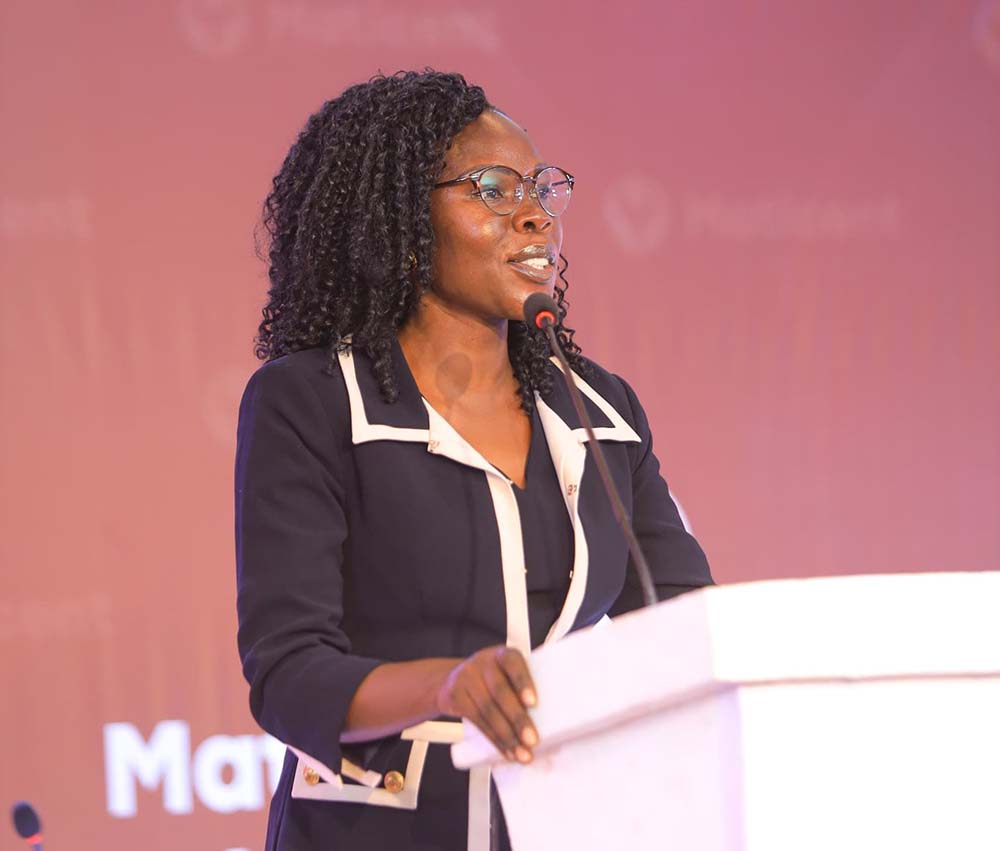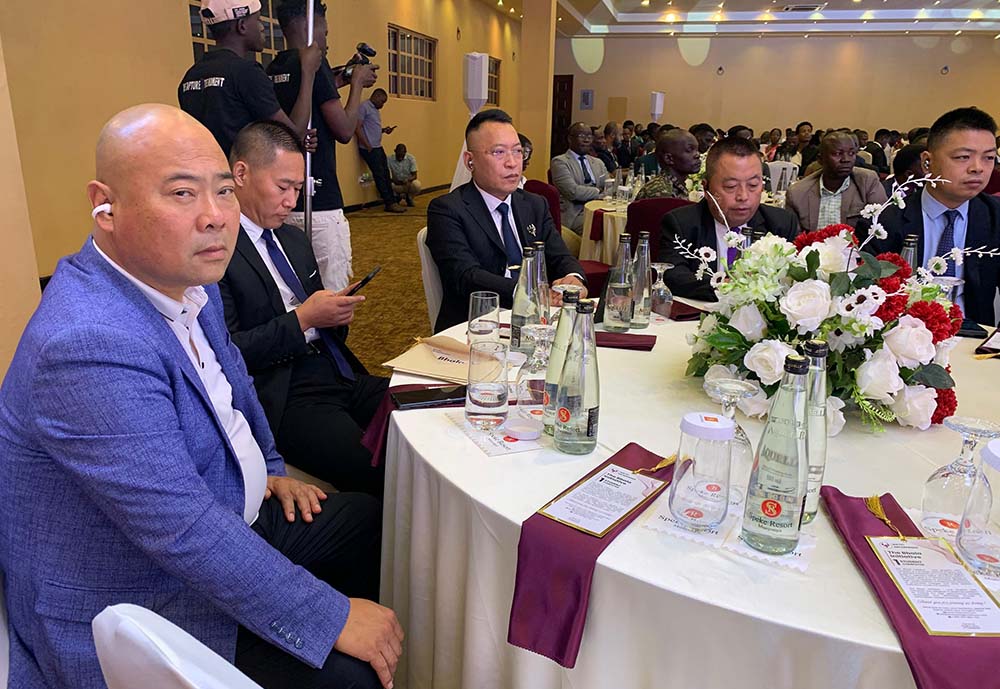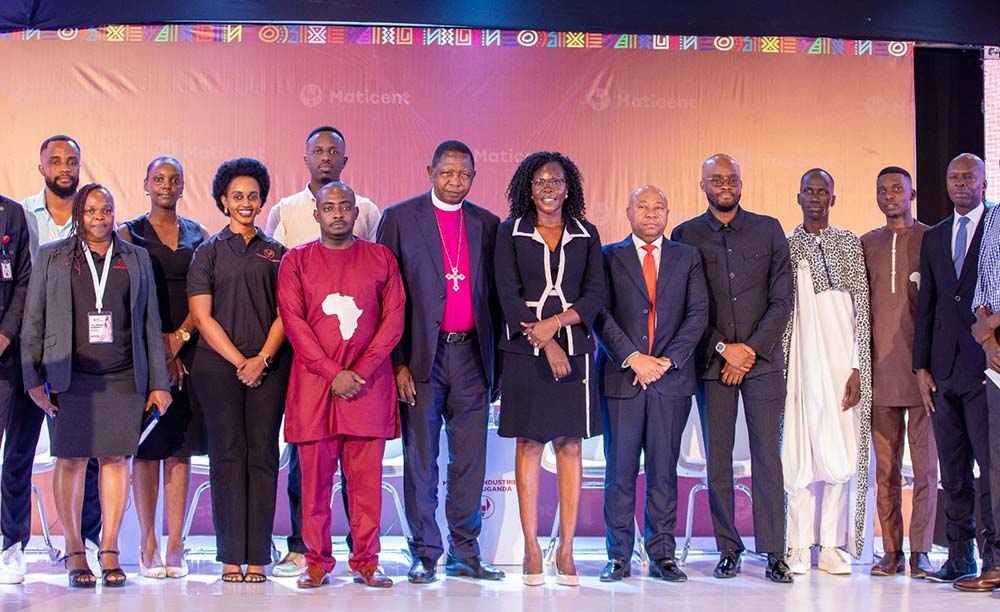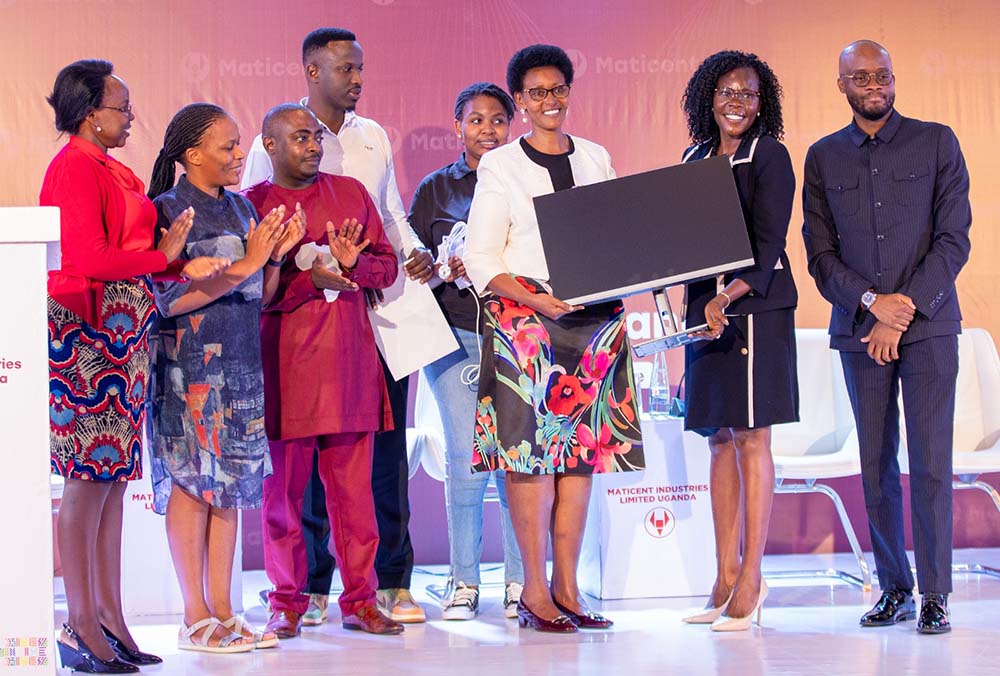Uganda launches 'one student, one laptop' program to bridge Uganda's digital divide
Minister Anite drew a poignant comparison to her own university experience in 2008, recalling the challenges of long queues at under-resourced computer labs. She emphasised that many students today still grapple with similar hurdles.
Minister Anite (2nd R) commended Maticent for what she described as a significant contribution to job creation within Uganda through its manufacturing facility. (Courtesy Photo)
KAMPALA - Government has launched the ‘One Student, One Laptop’ initiative, a significant program aimed at equipping every student in higher learning institutions with a personal computer.
Unveiled on Friday at Speke Resort Munyonyo, the initiative, dubbed “Bbala”, is a key component of the government's broader strategy to enhance Information and Communications Technology (ICT) adoption, improve digital literacy, and prepare the nation's youth for the demands of the Fourth Industrial Revolution.
The ‘One Student, One Laptop’ program is designed to provide high-performance laptops to students, lecturers, universities, and tertiary institutions across the country through a flexible subscription-based ownership model.
Under this arrangement, students will be required to make an initial deposit of 20% of the laptop’s cost. Upon this payment, they can take possession of the device and pay the remaining balance over a two-year period, making it more accessible for a wider range of students.
At the launch, Evelyn Anite, the State Minister for Investment and Privatisation, described the program as a transformative step in bridging Uganda’s persistent digital divide, particularly within the higher education sector.(Courtesy Photo)
The program is spearheaded by local technology firm Maticent Industries Ltd, in collaboration with the Ministry of Investment and other stakeholders, including ICT and education ministries.
This public-private partnership underscores the government's commitment to fostering local innovation while addressing critical national development goals.
At the launch, Evelyn Anite, the State Minister for Investment and Privatisation, described the program as a transformative step in bridging Uganda’s persistent digital divide, particularly within the higher education sector.
“This initiative directly supports President Yoweri Museveni’s vision of building an integrated and self-sustaining economy,” Anite stated. “While it might have seemed a distant goal, what Maticent is achieving now is a concrete response to that call – to build, innovate, and empower our nation.”

Minister Anite drew a poignant comparison to her own university experience in 2008, recalling the challenges of long queues at under-resourced computer labs. She emphasised that many students today still grapple with similar hurdles.
“Many universities and schools continue to lack adequate computer access. I am truly impressed that Maticent has brought an innovation of this magnitude, something unprecedented on Ugandan soil,” she noted, highlighting the program's potential to significantly alleviate these access issues.
She urged Ugandans to support locally manufactured products, reassuring the public that the government has implemented robust mechanisms to guarantee quality. This includes investing in vital research and development to ensure that Ugandan-made technology meets international standards.
“If there’s an issue with a locally made computer, you can easily access the manufacturer for support – a distinct advantage over many imported products.”

Evelyn Anite, the State Minister for Investment & Privatization (centre in black dress) praised Maticent's entry into local tech manufacturing as a historic shift from import dependency to self-reliance.
Job creation boost
Anite also commended Maticent for what she described as a significant contribution to job creation within Uganda through its manufacturing facility.
“The company has already generated over 100 jobs for Ugandans. By supporting such initiatives, we can ensure more Ugandans gain meaningful employment,” she said, underscoring the vital role of the private sector in addressing the nation’s employment challenges, especially given the limited capacity of the public service to absorb a large workforce.
She further pledged the government's full backing for the initiative, promising to champion policy support at the highest levels.
Eragy Bashonga Arapha, the CEO and founder of Maticent Industries, explained that the ‘Bbala’ program aligns perfectly with the President’s broader digital transformation agenda. He revealed that Maticent is in the process of establishing a local manufacturing plant with an impressive capacity to produce 25,000 laptops per month, a scale that could significantly impact national digital access.
Currently, Maticent operates from its office in Kololo, Kampala, where it manages subscriptions and verifies students’ enrollment status before distributing the laptops.
“We are actively encouraging every Ugandan student to acquire a computer and fully participate in the burgeoning digital economy,” Arapha stated.

He also highlighted Maticent’s international presence, noting its registration in multiple countries, including the Democratic Republic of Congo (DRC).
The company is actively involved in large-scale ICT projects, such as establishing hardware assembly hubs, data centres, and satellite systems across the region.
“As an advisor to the Minister of ICT in the DRC, I see this as I an example of how Africans can develop truly African solutions. This initiative is a game-changer not just for Uganda but for the entire continent,” Arapha proudly declared, emphasising the regional impact of the program.
Prof. Augustine Ifelebugu, Deputy Vice Chancellor in charge of Academic Affairs at Victoria University, echoed the sentiment of transformation, emphasising how improved access to ICT is fundamentally reshaping educational delivery.
“Distance is no longer a barrier to quality education,” Prof. Ifelebugu explained. “With advanced ICT tools, we now offer blended learning, seamlessly combining in-person and virtual instruction. This means students in Gulu, Soroti, or any other part of Uganda can attend classes at Victoria University in real-time, accessing the same high-quality content.”
He further credited ICT for enabling advanced virtual learning methods, including augmented reality-based education, and underscored its critical role in democratizing access to knowledge.
“This is truly empowering. With initiatives like ‘One Student, One Laptop,’ every Ugandan, regardless of their geographical location, can gain equitable access to quality education, fostering a more informed and skilled workforce for the future.”